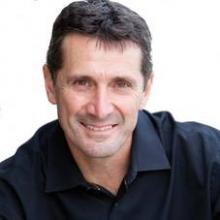Mindfulness could play a role in reducing physician burnout and, in turn, medical malpractice claims.
Burnout is "a massive problem," Dr. Daniel Friedland said at PIAA’s May medical liability conference in Toronto. "I don’t know of any other industry where burnout is so high. Here, we have physicians who are helping patients navigate their stress-related concerns and, in general, they tend to be more stressed out than their patients."
Several studies have linked burnout to medical errors. A survey of 7,905 surgeons found that each one-point increase in physicians’ emotional exhaustion was associated with a 5% increase in error reporting. Each one-point increase in depersonalization was associated with an 11% increase in reporting an error (Ann. Surg. 2010 June [doi:10.1097/SLA.ob013e3181bfdab3]).
In a study of patient performance ratings of 353 physicians at a large U.S. teaching hospital, researchers at the Harvard Risk Management Foundation found that patients were 26% more likely to sue doctors in the middle tier and 110% more likely to sue those in the bottom tier, compared with physicians in the top patient satisfaction level (Am. J. Med. 2005;118:1126-33).
Two primary components of burnout are emotional exhaustion and depersonalization, according to Dr. Colin P. West, professor of medicine, medical education, and biostatistics at the Mayo Clinic in Rochester, Minn.
"If you are depersonalized toward others and you’re not treating them as other human beings in the physician-patient relationship, it seems reasonable that that’s to be associated with poor communication skills and that could then lead to increased litigation risk," Dr. West said in an interview. "Certainly the literature suggests that [poor] physician communication is related to malpractice risk."
Gaining control of impending stress, anxiety, and tension is the first step to overcoming burnout, said Dr. Friedland, an internist and founder and CEO of SuperSmartHealth, a national consulting firm that provides health and wellness initiatives, physician resilience programs, and other management strategies to businesses and individuals.
He has developed a four-step program, "The 4 in 4 Framework to Cultivate Resiliency in Health Care," that centers on the mental practice of mindfulness. The program involves recognizing reactivity, reappraising stress and self-doubt, cultivating creativity, and focusing on what matters most.
Using the strategies builds physicians’ resiliency in the face of burnout, while also reducing their chances of making mistakes and being sued, Dr. Friedland said.
Mindfulness practices have been shown to markedly increase physician satisfaction, Dr. West said. In his study of 74 Mayo Clinic physicians enrolled in a stress intervention program, rates of high depersonalization decreased by 15.5% for physicians involved in the mindfulness program; physicians’ perceptions of meaningfulness in their work increased by 6% as well (JAMA Intern. Med. 2014;174:527-33).
"I think these [interventions] are important," Dr. West said. "But they are only part of what’s necessary. My view is that we need to come up with a toolkit of solutions. Some people are going to respond to mindfulness training, some are going to respond to yoga, some are going to respond to scheduling meetings with colleagues to maintain connectedness. [Research] suggests when you do such interventions, you can make pretty substantial differences" in physician burnout.


